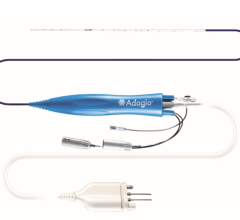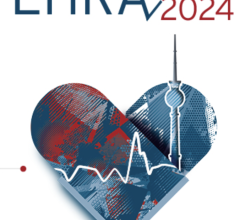
Getty Images
July 3, 2023 — Nearly one-third of patients with an implanted device to prevent sudden death have anxiety in the first year while depression affects one in five. That’s the finding of a study published today in EP Europace, a journal of the European Society of Cardiology (ESC).1
“Implantable cardioverter defibrillators (ICDs) are effective at extending patients’ lives but we need to make sure that’s a good quality life,” said study author Professor Hannah Keage of the University of South Australia, Adelaide, Australia. “Rates of mood disorders in people with an ICD are much higher than in the general population, suggesting that psychological assessment and therapy should be integrated into the routine care of these patients.”
An ICD is recommended for people at high risk of a life-threatening heart rhythm and those who have had a cardiac arrest.2 Anxiety and depression are associated with a higher likelihood of premature death in patients with an ICD.3 This study compiled the best available evidence to determine levels of depression, anxiety and post-traumatic stress disorder (PTSD) in patients with an ICD. Professor Keage explained: “I am a professor of psychology and have been working with cardiologists for many years. They noticed that mood disorders were common in their ICD patients so we teamed up to get an idea of how widespread this was.”
The analysis included 109 studies covering 39,954 ICD patients. When the prevalence of anxiety, depression and PTSD was examined from the time of ICD insertion to more than one year of follow-up, rates were 23%, 15% and 12%, respectively. Rates of these conditions in the general population are estimated at 13%, 7% and 1-2%, respectively. Further detail was available for anxiety and depression, which showed higher rates in the initial stages after implantation. In the first five months, 32% and 23% had anxiety and depression, respectively. Six to 12 months after insertion, rates of anxiety and depression had declined to 29% and 21%, respectively. Further declines were observed beyond 12 months after implantation, when rates were 22% and 15%, respectively.
When an ICD detects a dangerously fast heart rhythm, it delivers a shock to return it to normal, which can feel like being kicked in the chest. The analysis found that patients who had shocks were four times more likely to have anxiety and nearly twice as likely to have depression compared to those without shocks. In an analysis by sex, women were more likely than men to have anxiety after receiving their ICD.
Professor Keage said: “Rates of all three mood disorders were notably high compared to what we would expect in people without an ICD, particularly for PTSD. Around 30% of ICD patients will experience a shock in the first two years and for some patients this is a constant fear that affects decisions about driving, swimming, and so on. The decline in mood disorders over time could be due to a number of factors including patients getting psychological help or adapting to their new life. We can’t discount the possibility that healthier people tend to stay in studies longer while those in ill-health are more likely to drop out. The sex differences were expected as rates of anxiety are generally higher in women compared to men.”
The analysis also examined mood disorders in non-ICD participants of the 109 studies. An estimated 23% of ICD patients’ partners had anxiety following the implantation and 14% had depression – which was similar to the rates in patients themselves. Patients with cardiac disease but no ICD also had similar rates of mood disorders as those with an ICD.
Professor Keage said: “Partners are clearly worried about their loved one undergoing surgery and then potentially having a shock. Involving ICD patient partners in psychological therapies is more effective in improving patients’ physical and psychological health than attending alone.4 The findings in cardiac patients make a lot of sense, as heart health and mood disorders go hand in hand. Psychological ill-health can also lead to heart problems through chronic stress and unhealthy lifestyles. Psychologists have had little involvement in the care of cardiac patients but this needs to change. I would encourage patients and partners to seek help if their mood is low or they are overly worried, as there are evidence-based therapies for anxiety, depression and PTSD.”
For more information: www.escardio.org
References
1Ghezzi ES, Sharman RLS, Selvanayagam JB, et al. Burden of mood symptoms and disorders in implantable cardioverter defibrillator patients: A systematic review and meta-analysis of 39,954 patients. Europace. 2023. doi:10.1093/europace/euad130.
Link will go live on publication:
https://academic.oup.com/europace/article-lookup/doi/10.1093/europace/euad130
2Zeppenfeld K, Tfelt-Hansen J, de Riva M, et al. 2022 ESC Guidelines for the management of patients with ventricular arrhythmias and the prevention of sudden cardiac death. Eur Heart J. 2022;43:3997–4126.
3Lindekilde N, Skov O, Skovbakke SJ, et al. Anxiety and depression as risk factors for ICD shocks and mortality in patients with an implantable cardioverter defibrillator – A systematic review. Gen Hosp Psychiatry. 2022;78:96–107.
4Liberato ACS, Thompson EA, Dougherty CM. Intervention mediating effects of self-efficacy
on patient physical and psychological health following ICD implantation. J Behav Med. 2021;44:842–852.


 August 29, 2025
August 29, 2025 









